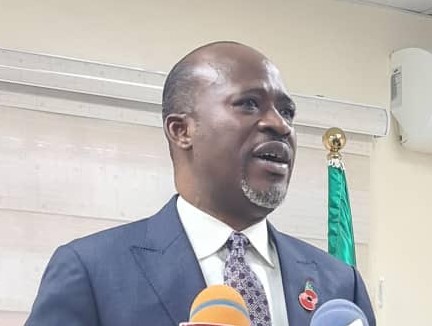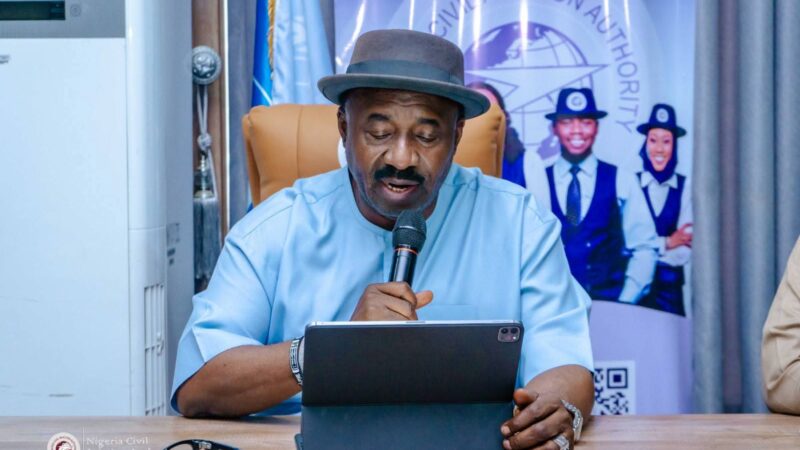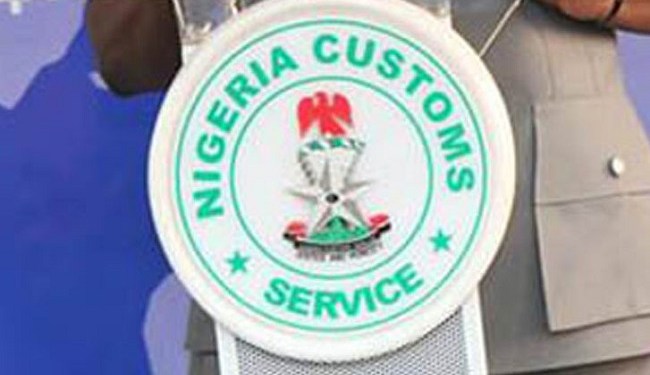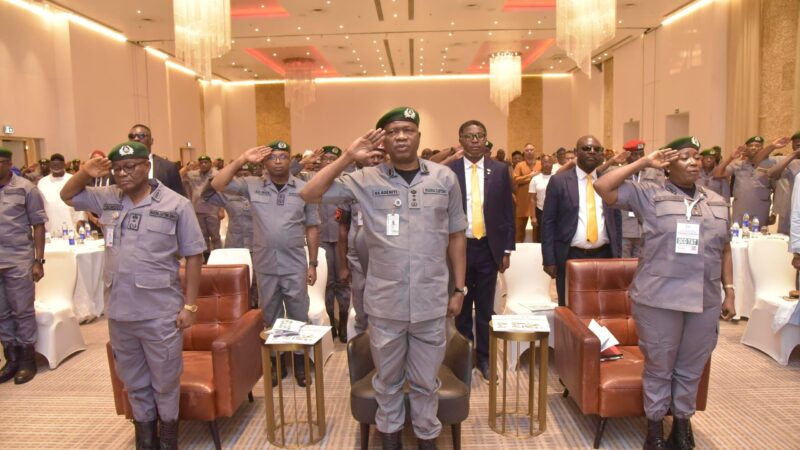NSIB attributes Max Air incident to poor maintenance, issues immediate recommendations

The Nigerian Safety Investigation Bureau ( NSIB) has attributed a serious incident involving an aircraft operated by Max Air at the Nnamdi Azikiwe International Airport (NAIA), Abuja on May 7, 2023, to poor maintenance culture of the operator.
In its preliminary report on the cause of the incident, the NSIB Director-General, Engr. Akin Olateru said the aircraft, a Boeing 737-400 series with registration number 5N-MBD, suffered brake failure due to poor maintenance and power failure.
Olateru issued Immediate safety recommendations to Max Air, Nigeria Civil Aviation Authority, Federal Airports Authority of Nigeria as well as the Nigerian Airspace Management Agency.
The NSIB boss recommended that Max Air should ensure its Quality Assurance keeps regular checks and maintenance activities, which must be supervised and monitored in accordance with the Maintenance Control Manual.
According to him, the quality control department did not supervise the maintenance action of the brake unit and wheel change on 5N-MBD conducted on 5th May 2023.
The NSIB recommended that the NCAA should, “Conduct regular safety management system (SMS) assessments to evaluate the capability of Max Air limited to effectively manage safety, and ensure that the PMI and POI of Max Air Limited increase surveillance and oversight to ensure maintenance and flight operations are carried out in accordance with NCAA Technical Guidance Material (TGM) Volume IV (Airworthiness Inspector’s Handbook) Chapter 23 (Continuing Surveillance) and TGM Volume III Flight Operations Inspector’s Handbook Chapter 30 (Continuing Surveillance).
“Max Air Limited should ensure that flight crew display good situational awareness and airmanship at all times during conduct of flight operations in accordance with Max Air ops manual.
“NCAA should invoke the relevant sections of Nig.CARs 2015 in accordance with IS 1.3.3 Legal Enforcement Actions to non-compliant operators with the AOL (NCAA/FSG/AOL/19/03) on continuous overwriting of Cockpit Voice Recorder (CVR) Information.
“NCAA should ensure FAAN/NAMA provide uninterrupted power supply in order to avoid vulnerability of their operational equipment,” said Olateru.
In its report, also, the NSIB said the Yola ATC Voice Recording System did not record any communication between the pilot and the duty controller on the day of the occurrence.
It also said days before the aircraft was operated, the wheel of the aircraft was worked on but still came off two days after signifying something went wrong with the change.
He said, “Days before the use of the aircraft, the wheels were worked on and when you work on the wheel, there are ways you are supposed to tighten the knots, there is what we call locking wire of the knots and there are other things to secure the wheel in place.
“Two days later, the wheel came out, which shows that something must be wrong with the maintenance of the aircraft. Whoever did the wheel definitely did not follow the manufacturer’s recommendation on how to change the wheel.
“So, for a wheel to have fallen off, even Boeing was also interested in this because it is their aircraft and they find the news very embarrassing. So, they are working with us so that they can have firsthand information.







